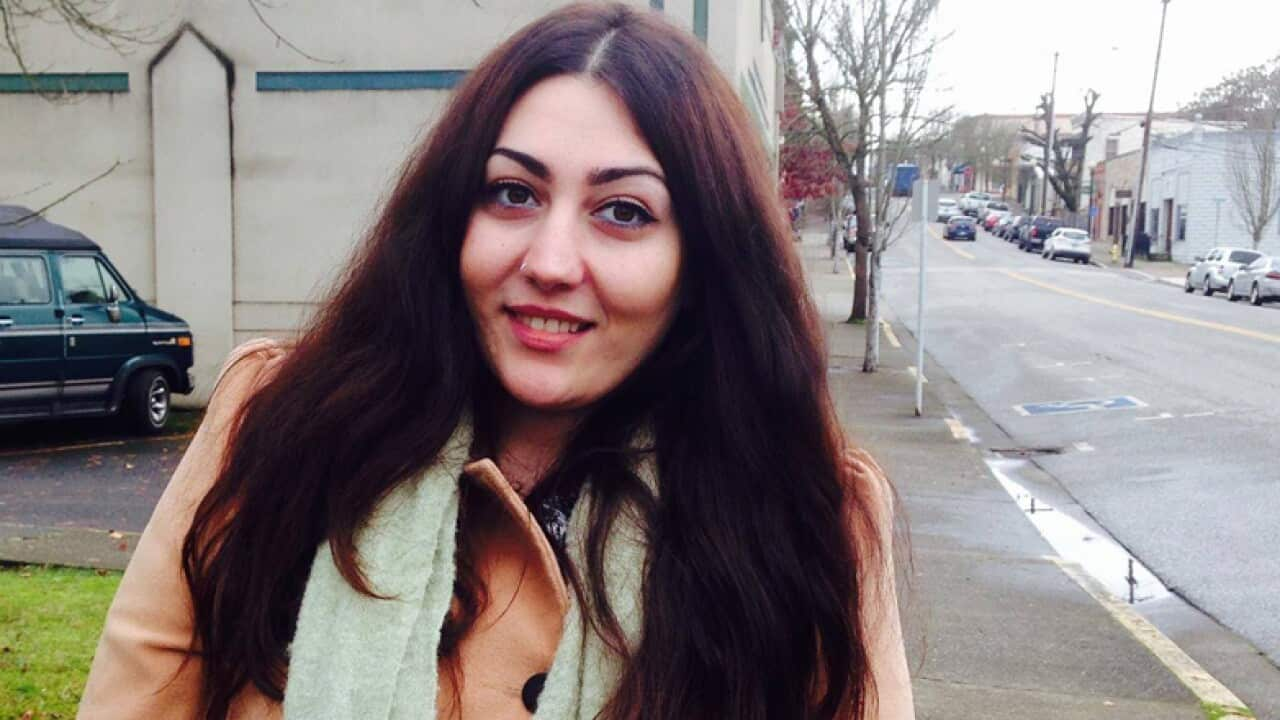I got beaten up, spat on and told to ‘go back to my country’ almost weekly in high school, and I watched my siblings go through similar things.
But, it hasn't broken me. In fact, it's just strengthened me.
We live in a world where the sentiment ‘go back to your country’ is embraced by the president of the United States of America - and is considered completely normal by some. A world where words can be just as powerful as the leaders who use them.
After years of hearing that phrase, its meaning began to change for me, and motivated me to tell stories of migrants through a positive light. Telling their stories to show that we’re not that different is what has kept me going.
However, suggesting four US congresswomen go back and fix the "totally broken and crime infested places from which they came", it made me think about how I felt when the phrase “go back to where you came from” was first said to me in high school.
Growing up and going to school in one of the “whitest” suburbs in Victoria wasn’t a problem for me - until my classmates made it so.
I didn’t see the difference between us. I never wondered why my hair was black, and theirs was blonde, or why I had to attend Arabic school on Saturdays while they went to the footy.
It wasn’t apparent to me how different they saw us until grade 6, when a girl told me that my “people” were terrorists and were only allowed into Australia because “her people” let them in.
Even as a young girl, it really bothered me to hear these things, as I knew they were simply untrue. I had come to Australia with my family from war-torn Lebanon and we arrived on a plane. We had migrated legally, and my family were certainly not terrorists.
On September 11th 2001, the day the Twin Towers in New York City were attacked, everything changed for me.
On September 11th 2001, the day the Twin Towers in New York City were attacked, everything changed for me. I’d already endured verbal abuse being called a “dirty Arab”, but that day is etched into my mind forever.
I was 13 years old. I came to school that morning and everybody in class had already been waiting for me and watching the news. They sat me in front of the classroom and demanded explanations for what had happened. Later that day I had the words “terrorist” written in tomato sauce on my locker.
The incident made me I realise how powerful information was – and just how powerful misinformation could be.
I enrolled in Media class the next semester and decided it was time for the misinformation to stop. It was time to make minority voices heard, as I was tired of saying “it wasn’t me”. That’s when I decided to become a journalist. What motivated me was proving them wrong. I began researching about the stolen generation and learning about the traditional custodians of the land we were living on.
Whenever they told me to “go back home” I would reply: “have you considered that we’re standing on stolen land?”
The phrase “Go back to your country,” no longer hurt me, it began to empower me.
Whenever they told me to “go back home” I would reply: “have you considered that we’re standing on stolen land?”
I took comfort in knowing that racism and bigotry came from being ill-informed and what truly mattered was how resilient I was to their hate. I felt unstoppable.
As a journalist, I’ve dedicated my time to help fix the misconceptions about migrants by telling their stories, giving them a voice in the media and reporting on issues that concern them. I’ve worked as a mentor within Arabic communities to help train and empower other Arabic young women to have their voices heard.
The bullying, taunting and name calling only made me realise I had to be stronger. It only solidified my purpose.
I will never forget the names of each of the bullies who beat me, called me names, and made me feel like I didn’t belong. But, I will also never forget the lessons I learned from their hatred.
I’ve even managed to help friends, who had misconceived ideas about the Arabic community, see that we were people just like they were. I did this by answering questions that they, and putting to rest rumours and stereotypes.
By opening dialogue with them, it allowed them to see our similarities and the difference between extremism and cultural practice.
My experiences only helped me learn lessons that remain invaluable to me.
If we use the words that hurt us as fuel to make a change, we can take the power back and re-assign meaning to those very same words.
In the end, they’re just words, and words can be changed to turn hatred into love and acceptance.
Zena Chamas is a freelance writer. Follow her on Twitter at


